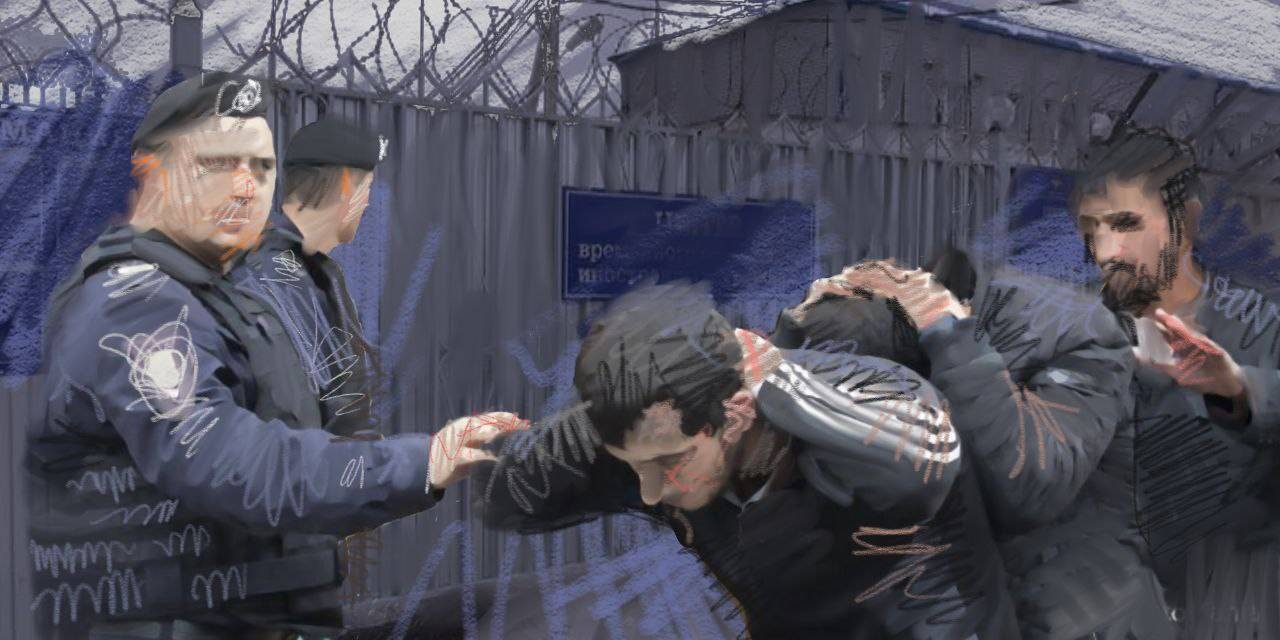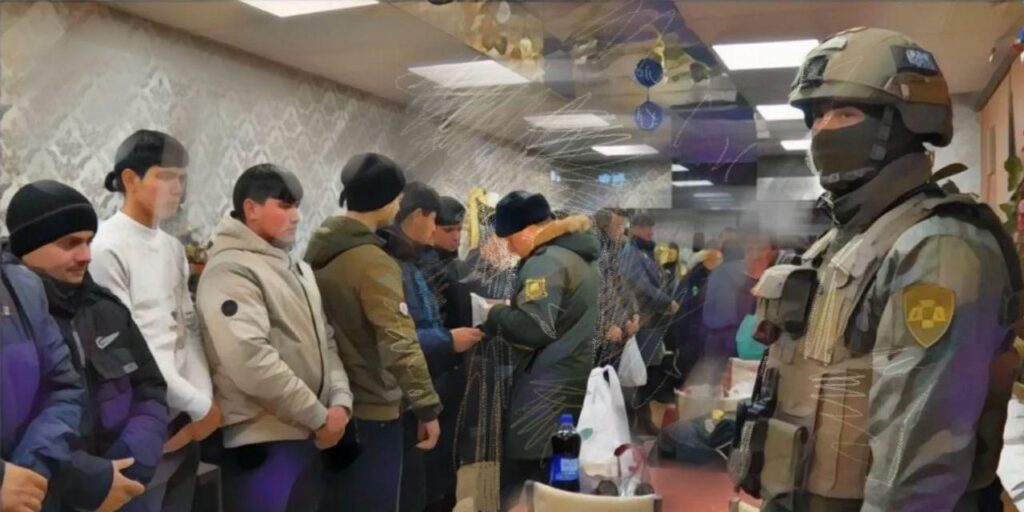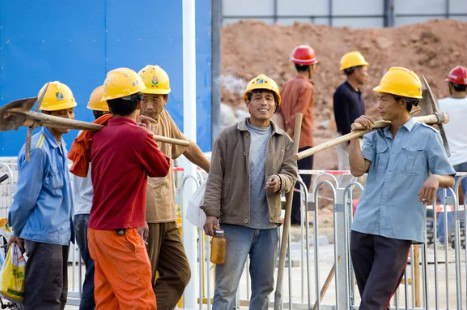The punishment for many Central Asians in Russia whose work or residency documents are not in order is pain and humiliation, and then possibly deportation. Xenophobia targeting Central Asians in Russia has been on the rise since the March 22 terrorist attack on Moscow’s Crocus City Hall that left more than 140 people dead. Russian authorities apprehended a group of ethnic Tajiks who allegedly carried out the attack and after that the level of prejudice against Central Asians in Russia, which has always existed, dramatically worsened.
The treatment of Central Asians at the Sakharovo migration center on the outskirts of Moscow is an example. Moscow courts are likely to send Central Asians caught with document problems to the Sakharovo center.
Radio Free Europe’s Kyrgyz Service interviewed several people who passed through the Sakharovo center. Their descriptions shed light on the conditions inside.
One man who spent 18 days in the center said, “The day we entered there, they intimidated us, forced us to walk in single file, run fast… then they examined us and beat us with a stun gun.”
That jibes with another man’s description. “They call your last name, then you go out into the corridor and run. There they hit you on the back of the head and tell you to ‘run.’” Then, the man continued, “They made me face the wall, forced me to raise my arms up, spread my legs, and started hitting me with a stun gun.”
There is an anti-Islamic element to the treatment of detainees at Sakharovo.
A different person remembered this about his detention. “They fed us food with pork. Since we were hungry, we removed the meat and ate what was left.” He said there were some people who recited their daily prayers in their rooms. “When one guy was saying namaz, the guards entered. Then one of them (the guards) hit him in the face twice.” When the person continued saying his prayers, the guards said, “Let him go to Kyrgyzstan, Tajikistan, Uzbekistan, and read his prayer there.”
Some of the detainees with beards were forcibly shaved.
Batygul Moldobayeva is from Kyrgyzstan. She was detained in Moscow this summer with an expired work permit and sent to Sakharovo. Moldobayeva said the guards yelled at women detainees and were rude to them. She added that sometimes the guards “asked them to be their ‘temporary wives.’” Moldobayeva said there were pregnant women in the center, some as far along as six months, and the guards did not pay any attention to their condition. According to Moldobayeva, there were some Kyrgyz citizens at Sakharovo who had been there for three or four months.
Askar Uskenbayev is another Kyrgyz citizen who was detained in Moscow in mid-June and sent to Sakharovo. He said he met fellow Kyrgyz citizens who had been there six months.
After being deported back to Kyrgyzstan, Moldobayeva posted about her experience on social media and warned Kyrgyz citizens to be sure all their documents were in order if they planned on traveling to and staying in Russia. She also confirmed in her posts that guards at the center beat some of the male detainees.
Another common complaint from detainees was that the air-conditioners at the center made it uncomfortably cold. Those detained at Sakharovo were let out into a courtyard once a day and some recalled there were bars all around the yard and even overhead, the sort of cage one would expect in a prison.
A big problem was that all the detainees’ phones were confiscated when they entered Sakharovo. They were allowed to use the center’s push-button telephones once every four days, but this was problematic as many people did not know from memory the phone numbers of the people they wanted to call. Uskenbayev said it was possible “to buy” your mobile phone back from the guards for 15,000 rubles.
Center officials also try to recruit young men detained at Sakharovo to join the Russian army and fight in Ukraine.
Kyrgyzstan’s Labor Ministry says it regularly sends representatives to Sakharovo to check on Kyrgyz nationals held there. Some of the former Sakharovo detainees said they complained to the Kyrgyz Embassy about torture at the center. However, Russian authorities deny the allegations, so there is not much the Kyrgyz government can do to help citizens detained at the center.
Zhandarbek Aitnazaov of Kyrgyzstan’s Ministry of Labor, Social Security and Labor Migration said in an interview at the end of July that “in September a raid called ‘Illegal’ will be conducted in Russia against foreign citizens,” and warned Kyrgyz not to travel to Russia until the situation stabilizes.
As of mid- July, there were 136 Tajik citizens being held at Sakharovo, and 173 Kyrgyz citizens. None of the people at Sakharovo are dangerous criminals, yet some seem to be treated as if they had been sent to the gulag.
The accounts given here are from Kyrgyz citizens, and Kyrgyzstan is a member of the Russian-led Eurasian Economic Union (EEU).
Under EEU agreements, Kyrgyz citizens in Russia should enjoy greater labor rights than Tajiks or Uzbeks, whose countries are not in the EEU, which raises the question that if Kyrgyz are being treated this way at Sakharovo, how are Tajiks, Uzbeks, and others from non-EEU countries being treated?









